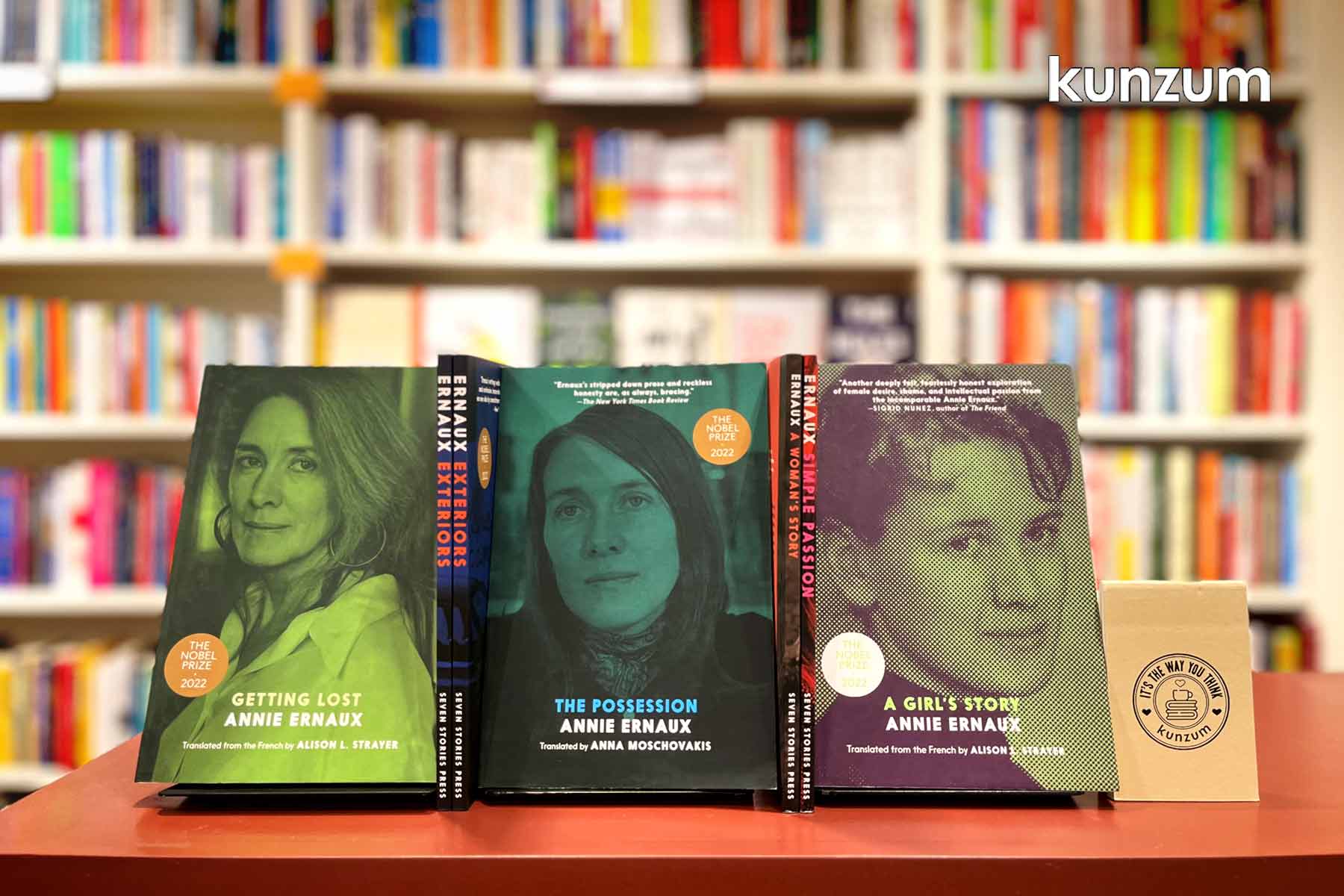
The author known for autobiographical creative non-fiction, the first Frenchwoman to win a Nobel, securing 2022’s Nobel Prize in Literature for the “courage and clinical acuity with which she uncovers the roots, estrangements and collective restraints of personal memory”, Annie Ernaux should be known by all as a writer who crucially chronicles life, specifically women. With novellas that carefully compress and simultaneously expand monumental and formative life events, from affairs and abortions to breast cancer and death, Ernaux’s literature makes for sincerely meaningful reading.
Translated into English by Fitzcarraldo Editions (those magnificent blue and creamy whites that remain exclusive to brilliant international literature/ a boutique London publishing house that offers a subscription service!!) and the Seven Stories Press (known for their impressive catalogue of political literature ala Chomsky, Octavia Butler, Angela Davis et al), Ernaux’s books are quickly gaining worldwide acclaim and visibility, now an author that demands and commands an entire section of your bookseller’s mighty or tiny bookstore.
To read about Ernaux’s books is to be intimately familiar with the events of her life. To read Ernaux’s books is to intimately experience life in all its poignancy. Familiarise yourself with one of the greatest living authors of our time and be glad to share the sun with one Annie Ernaux.

A Man’s Place
Ernaux’s father died exactly two months after she passed her teaching certificate. He didn’t have much in terms of an education but was able to afford a family via a grocery store and cafe. He was a hard man who valued hard labour over pliable language, well-versed with a world that is prepared to do all that it did to him. A Man’s Place takes us to Ernaux’s childhood in the hamlet of Normandy, tracing her relationship with her ageing father against her own coming-of-age, her life as she grew old enough to move out and simultaneously, for her father to age enough to pass away. Unsentimental and yet moving, her portrait showcases a man in all his habits, merits and fallacies, offering a picture of a middle-class family, of growing up in one, of all fathers, and then, of Ernaux’s own.
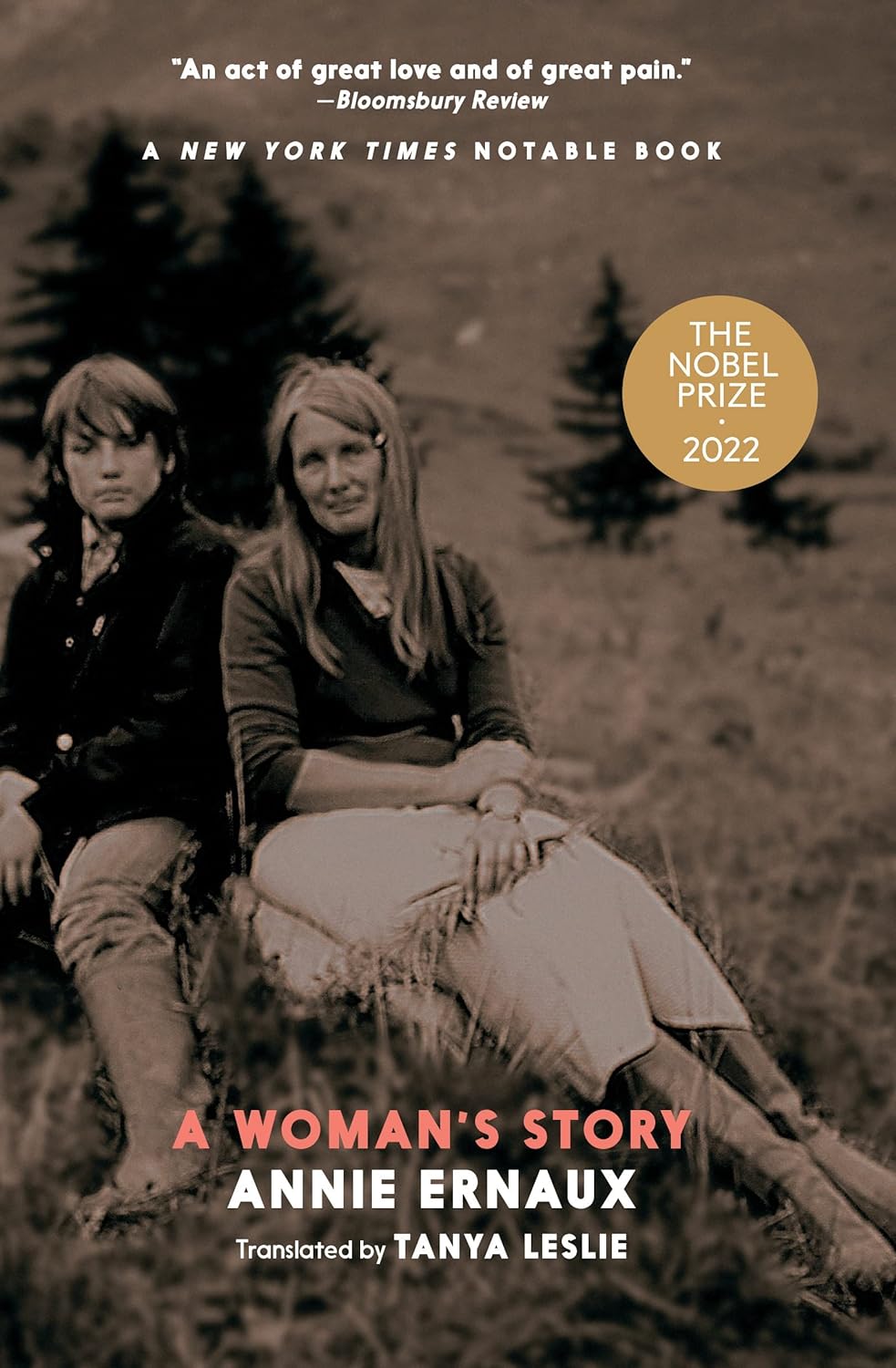
A Woman’s Story
The autofic that won Ernaux a Nobel in 2022, The Woman’s Story takes us to a bereaved author in retrospect, attempting to uncover the story of her deceased mother. After her mother dies of Alzheimer’s, Ernaux attempts to venture back and excavate who she was, in an attempt to find and “capture the real woman, the one who existed independently from me, born in the outskirts of a small Normandy town, and who died in the geriatric ward of a hospital in the suburb of Paris.” Writing about her mother as a way of navigating grief, this story is also a love letter. Involving the twin act of remembering and re-creating, A Woman’s Story, despite its specificity and context, additionally emerges as a narration of the everywoman, offering a universal portrayal of the quintessential mother-daughter relationship, making the book deeply accessible and a cause for reflection. A year after her mother’s passing, Ernaux categorises her grief as a mourning of ‘severance’, “I shall never hear the sound of her voice again—the last bond between me and the world I come from has been severed.”
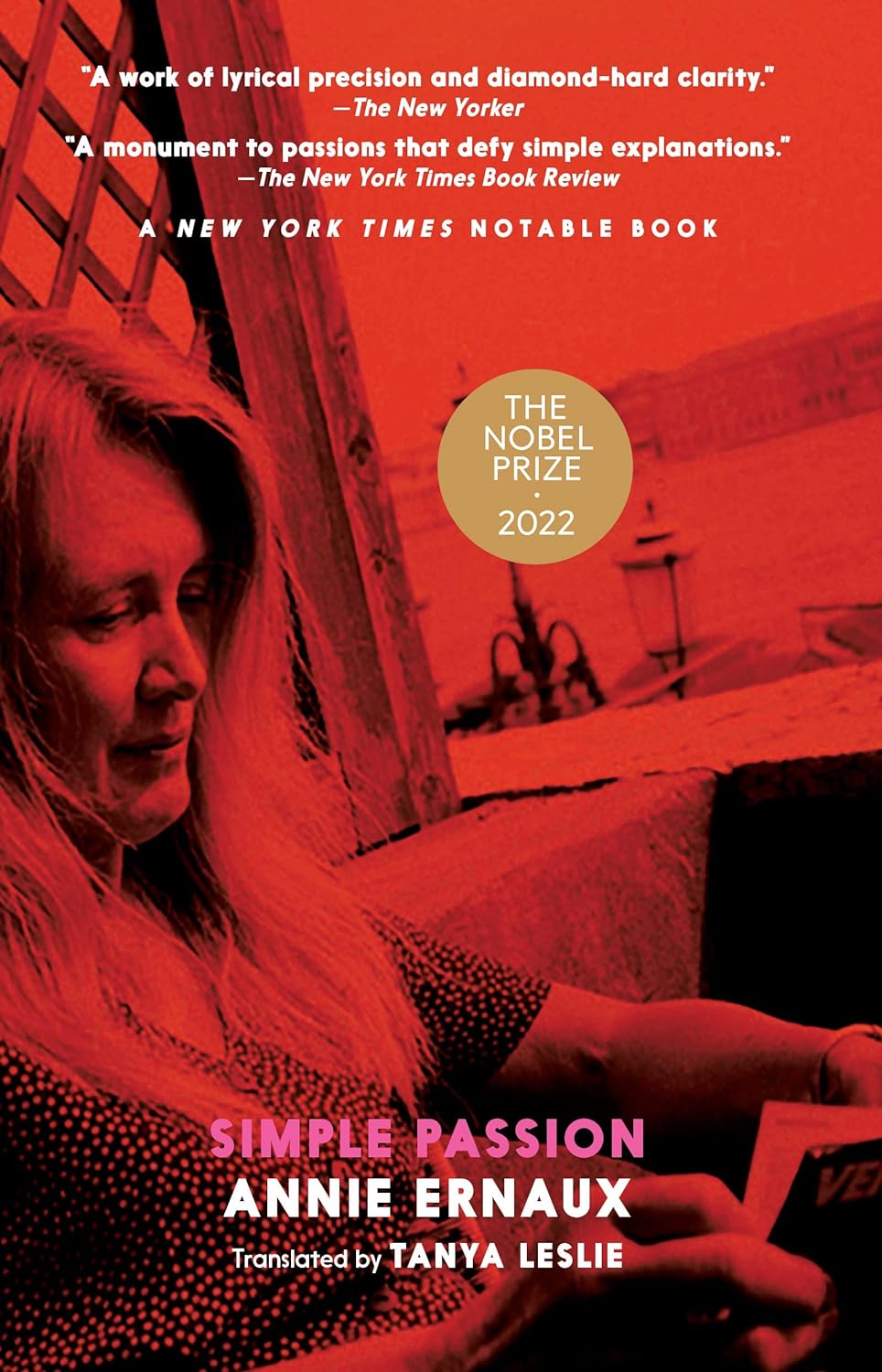
Simple Passion
Simple Passion follows the deceptively simple story of an independent modern woman’s passionate desire for a married man. Exploring the turbulent terrains of affairs and the string of emotions attached, Ernaux offers an even-handed and honest portrayal of an all-consuming obsession Detailing a two-year relationship, the book, marked by Ernaux’s signature sparse style as well as autofiction, explores the rawness of desire with a sense of objectivity, dissecting the ways in which passion can consume a person’s interiority. She delves into the sacrifices made in the throes of passion, questioning if the intensity of the affair justifies the emotional turmoil and potential social consequences.
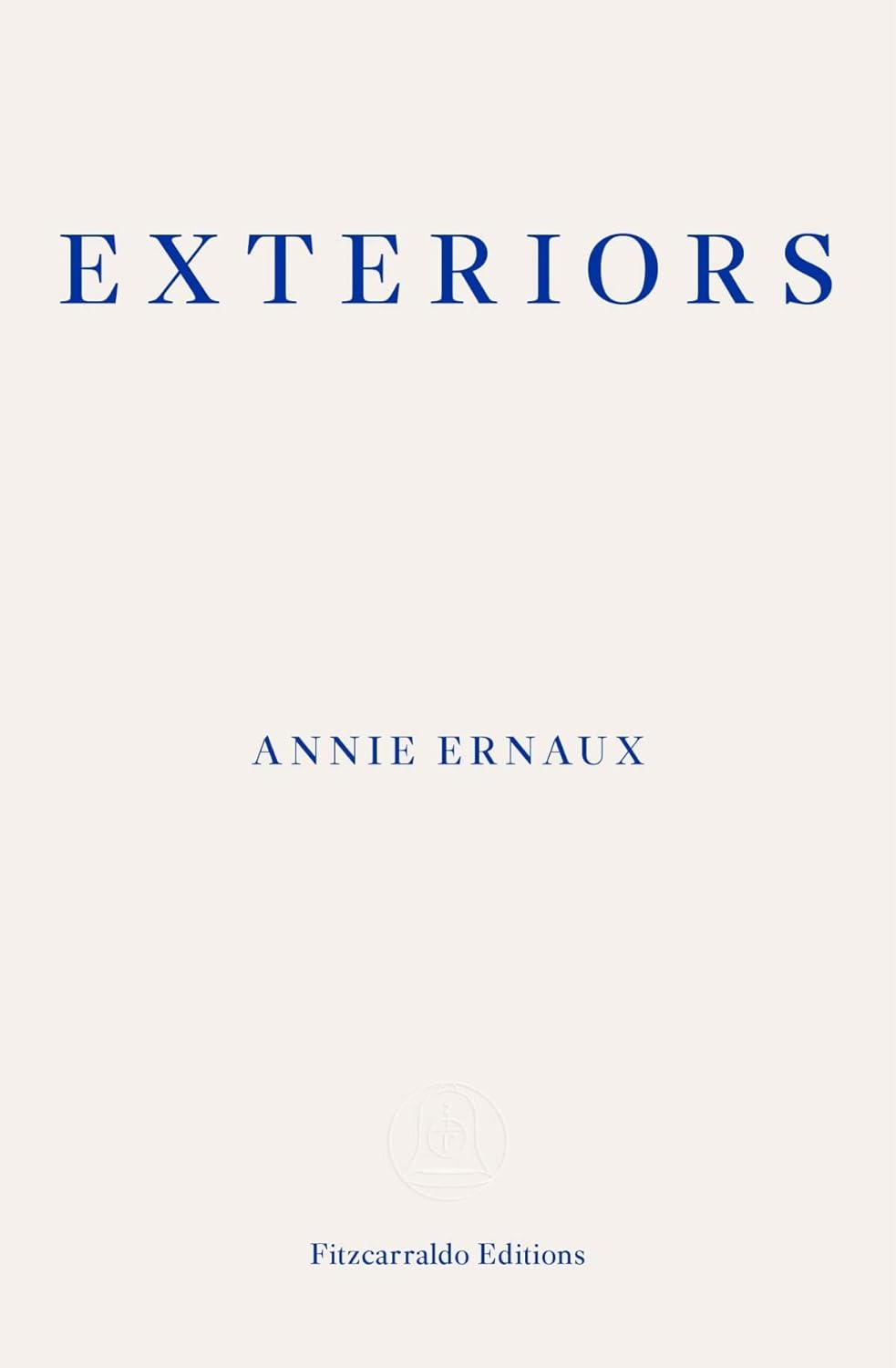
Exteriors
Described as “lyrical and wild” by Fitzcarraldo Editions, Exteriors is a book unlike Ernaux’s others. A mosaic of life on the outskirts of Paris, captured through seven years of fragmented journal entries, the book is a compendium of instances and stories. Ernaux isn’t the protagonist here; instead, she observes the fleeting encounters on trains, streets, and shopping centres. These glimpses – a homeless man’s desperate plea for help, and a child’s frustrated cry in a crowded supermarket aisle – paint a poignant and chaotic portrait of contemporary life. Capturing the raw emotions and vulnerabilities that lie just beneath the surface of everyday interactions, through these seemingly insignificant moments, Ernaux reveals the complexities of human experience in a consumerist society.
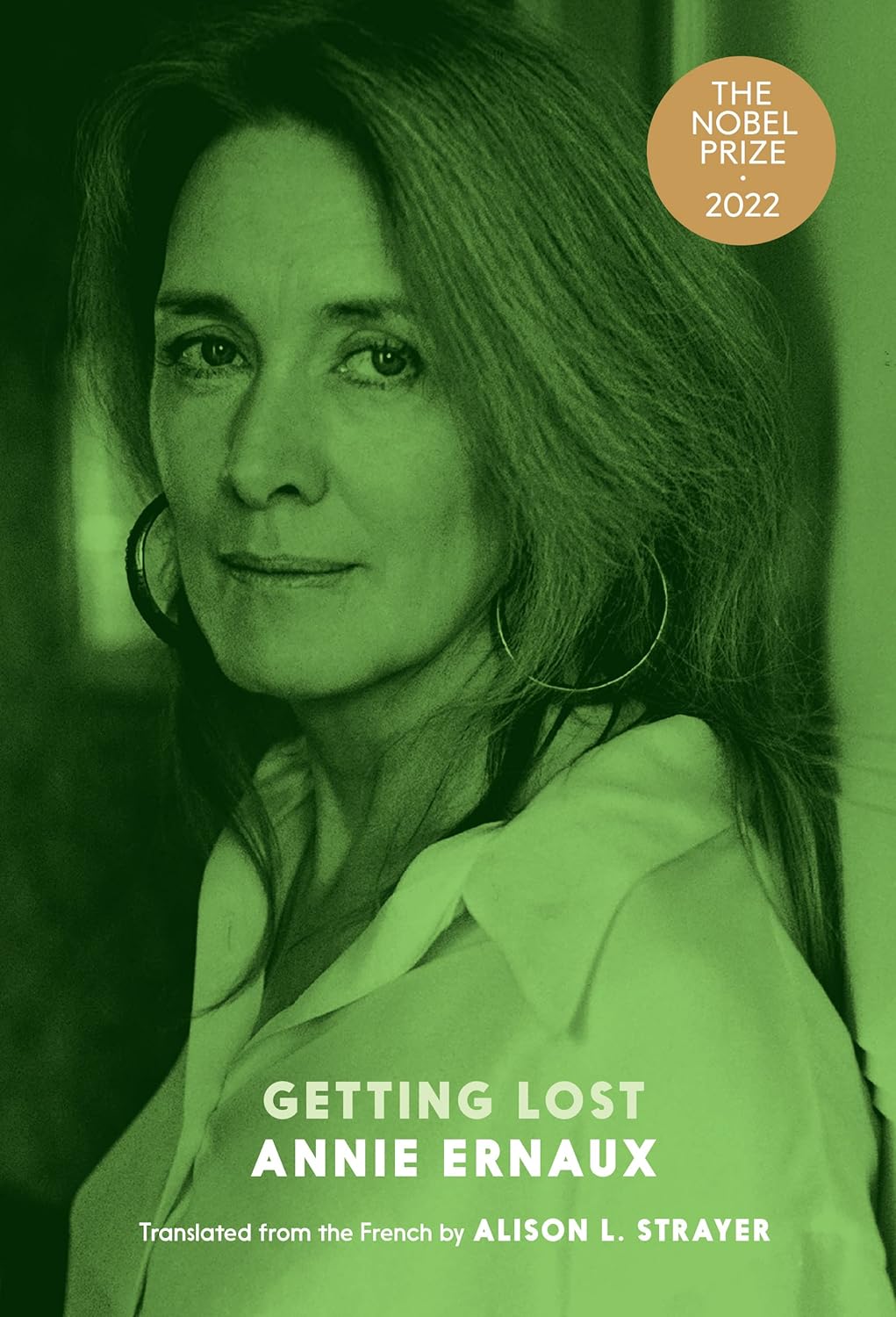
Getting Lost
Annie Ernaux’s Getting Lost is an unflinching memoir chronicling an 18-month affair with a married Soviet diplomat. Through her unfiltered diary entries, Ernaux, nearing 50 and recently divorced, lays bare the consuming passion and desperation that colour this secret relationship. Set against the backdrop of late 1980s Paris, the narrative explores themes of desire, vulnerability, and the fear of abandonment. While some praise Ernaux’s honest portrayal of a woman consumed by love, others find the obsessive nature of the affair unsettling. This emotional rollercoaster of a book served as the inspiration for Ernaux’s later novel, Simple Passion.
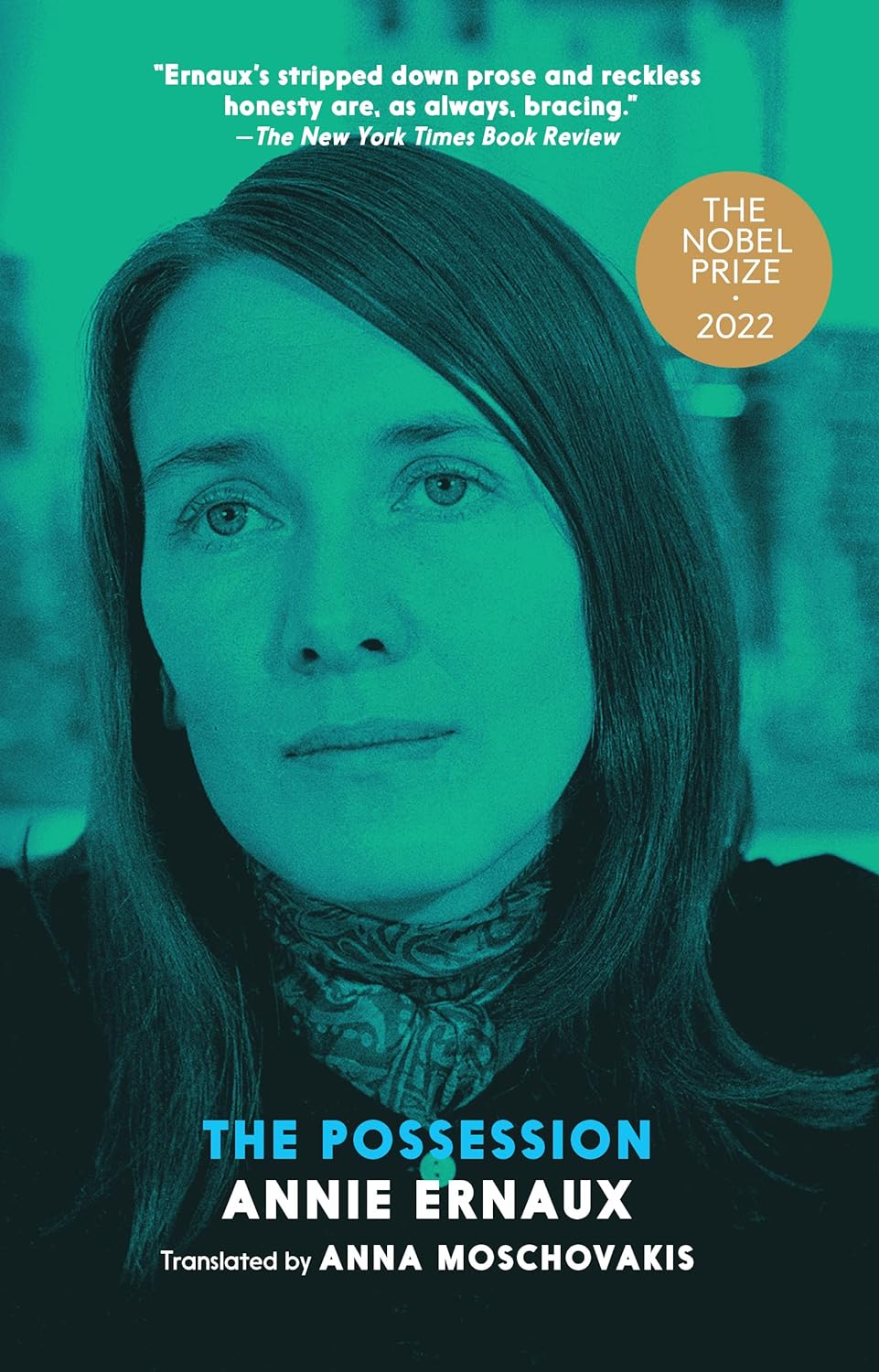
The Possession
Annie Ernaux’s “The Possession” delves into the raw aftermath of a love affair. The unnamed narrator, grappling with jealousy, dissects the excruciating pain of rejection. Ernaux, known for her autobiographical style, lays bare the all-consuming nature of jealousy, where even a stranger, the “other woman,” becomes an obsession. The novel’s opening line, “The strangest thing about jealousy is that it can populate an entire city—the whole world—with a person you may never have met.” perfectly captures this central theme. Praised for its unflinching honesty, “The Possession” won critical acclaim, offering something close to pure objectivity in rendering an emotionally convoluted and deeply subjective subject.
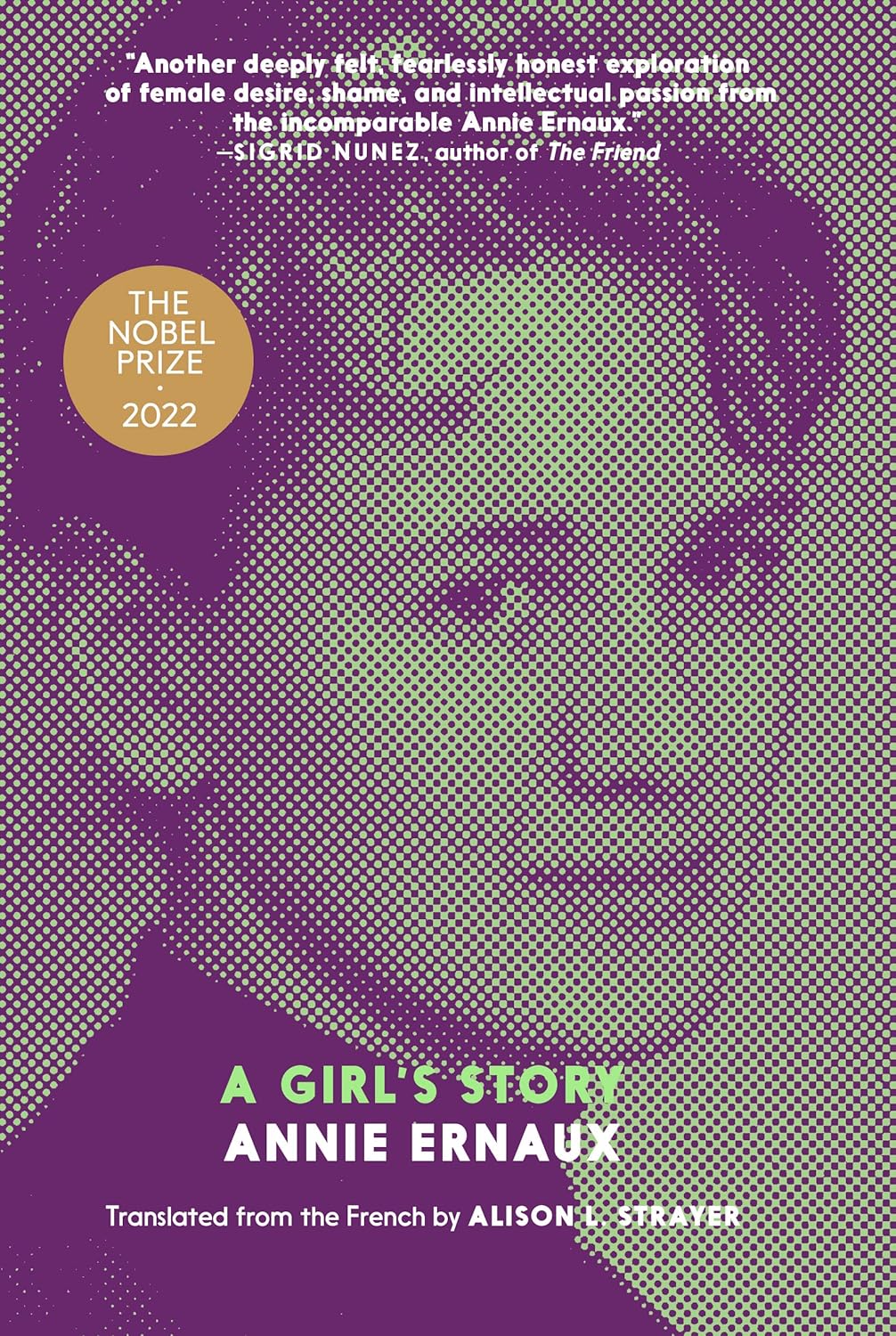
A Girl’s Story
Exploring a formative summer in the author’s youth, A Girl’s Story sees Ernaux as an 18-year-old camp counsellor. Beset with newfound freedom, a tumultuous sexual encounter with an older man leaves her feeling trapped in the power balance inherent to the affair, created in part by their age as well as socio-economic differences. Exploited and emotionally adrift in a confusing mix of desire, shame and a looming sense of betrayal, she confronts the memory years later, finally reflecting on and actively addressing the complex emotions surrounding that pivotal summer. Praised for its unflinching honesty, the book is considered a masterpiece of memoir, evoking a young woman’s vulnerability and the lingering effects of a singular event.
Pick up any of these 7 Annie Ernaux Autofictions from any Kunzum store or WhatsApp +91.8800200280 to order. Buy the book(s) and the coffee’s on us.
